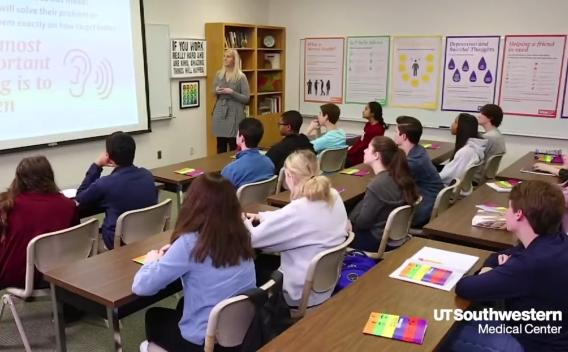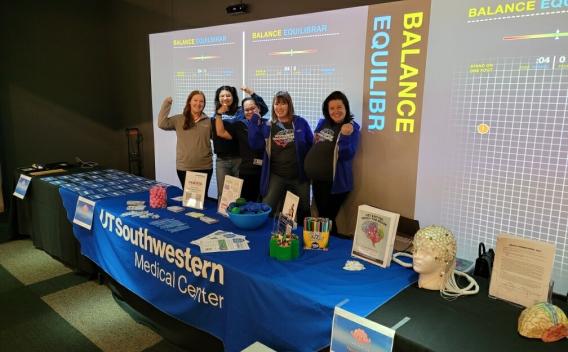The CDRC is committed to providing learning opportunities for providers, patients, researchers, and students. Through many of our programs, we are training the next generation of mental health care providers and increasing the quality of treatments to patients in North Texas.
Cultivating Knowledge to Impact Positive Change
The Center for Depression Research and Clinical Care (CDRC) at UT Southwestern Medical Center is nationally recognized for its cutting edge research in unipolar and bipolar depression. The research conducted within the center brings better understanding of the causes of depression, identifies effective new treatments, and improves existing ones.
CRED is an internship program committed to educating students to be tomorrow’s leaders in Clinical and Translational Depression Research and Mental Health. This internship, designed for High School and Undergraduate Students, provides lectures from CDRC faculty and hands-on experience in different aspects of clinical and translational research.
If you would like to know more, email us.
The CDRC holds meetings for providers from all different disciplines to come together and learn about topics ranging from best treatment practices to new antidepressant medications.
If you would like to know more, email us.
Junior Clinical and Translational Science KL2 Faculty Investigators
This two-year program is designed for junior faculty who show great promise toward becoming successful, independently funded clinical and translational science investigators. KL2 Scholar salary is partially supported by the KL2 grant. Six KL2 Scholars are supported each year for a two-year term.
UT Southwestern has made an institution-wide commitment to training research-oriented residents, and the Department of Psychiatry shares that commitment. We are enthusiastic about training the next generation of psychiatrist-scientists.
Our research track residency program, called Translational Research Activities in Neuropsychiatry (TRAIN), is funded by the National Institute of Mental Health (R25MH101078; M. H. Trivedi, Principal Investigator). The program is designed to allow flexibility for residents to develop and implement translational research projects. TRAIN residents will have access to didactics, financial support, and protected time for research.
YAM Certification for Educational Professionals
Since the program began in 2016, the CDRC team has reached over 20,000 youth in over 1,100 classrooms with the YAM program. Due to the program’s success, the CDRC team has transitioned to training new facilitators to reach more students and create more sustainable school-based mental health programming.
Building Resilience in Youth
To better understand the areas of greatest impact, we have identified, and partnered with schools, youth organizations, and healthcare systems on initiatives to improve diagnosis and treatment of mood disorders and suicide prevention in youth.
Find out more
Partnering Across Texas
The CDRC participates in multiple community activities, and host engagements to further our mission. Our work includes part of an important ongoing collaboration with partners in STEM outreach to educate the community about mental health, brain development, and our newest tool, EVEXIA.
Find out more
Reframing the conversation
On our Brainstorm podcast, we decode the science of mood disorders through discussions with a leading expert in the field, Dr. Madhukar Trivedi. We’re here to change the way we think and talk about depression, in an accessible, approachable way.
Find out moreReal People. Real Research.
Be part of the great impact we're having on science and medical care across the globe.
Continued advancements come through tireless pursuit, and our Center's faculty and staff understand that the commitment we renew each day is built upon a foundation of scholarship and a network of like-minded organizations. By sharing our findings worldwide, we strive to improve patient care and further the research momentum of our fellow scientists. Made possible by public grants and philanthropic investments, these programs provide civic and health partners with resources and tools to better prevent, identify, and treat depression in individuals of all ages.